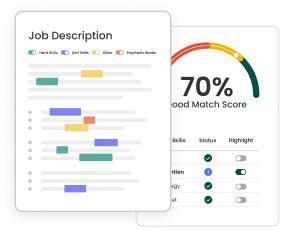Clinical Pharmacy Specialist - Operations
Nuvance Health - Poughkeepsie, NY
posted 4 months ago
About the position
The Clinical Pharmacy Specialist plays a crucial role in developing and providing comprehensive pharmaceutical care to all patients. This includes monitoring drug therapy, providing clinical and drug information, participating in patient rounds in designated areas, and maintaining and developing clinical protocols. The specialist is expected to lead clinical programming efforts in their area of specialty, which may include critical care, decentralized pharmacy roles, antibiotic stewardship, central pharmacy operations, and oncology clinical services. The role requires the development of program plans, criteria, and objectives, as well as chairing and attending various committees to ensure the implementation of these programs. Additionally, the specialist is responsible for developing action plans and monitoring the progress of these initiatives. The Clinical Pharmacy Specialist is also tasked with interpreting, generating, and disseminating knowledge in pharmacotherapy to health professionals. This involves retrieving and evaluating biomedical literature using accepted principles of drug literature evaluation and evidence-based medicine. The specialist participates in interdisciplinary patient care rounds, acting as a clinical and drug information resource for hospital staff, and serves as a clinical pharmacy resource to disseminate pharmacotherapeutic knowledge to patients, students, and other health professionals. Furthermore, the specialist designs, recommends, implements, monitors, and modifies system-specific policies and procedures involving internal medicine patients in collaboration with other professionals and administrators to optimize healthcare. This includes providing expertise to hospital-related committees, developing medication-related policies, and assisting in the development of clinical standards and criteria. The specialist also participates in initiatives to meet and maintain The Joint Commission standards, ensuring safe medication use processes and utilizing various data sources to further develop clinical programs. To maintain professional knowledge and competence, the Clinical Pharmacy Specialist is expected to keep current with drug knowledge and trends in pharmacy practice, completing at least 20 continuing education credits annually, with 10 of those being contact hours. The role also involves project management, where the specialist analyzes project scope, identifies tasks and timelines, reports obstacles to project progress, and completes assignments within reasonable time frames. Monitoring drug therapy in hospital patients is another key responsibility, which includes collecting and interpreting data to design and modify patient-specific pharmacotherapy in collaboration with other healthcare professionals. The specialist also provides medication teaching to patients upon request and must demonstrate knowledge and compliance with pharmacy regulations, including USP 797 and 800 standards, Joint Commission medication management, and state drug laws.
Responsibilities
- Develops and leads clinical programming efforts in area of specialty (critical care, decentralized pharmacy, antibiotic stewardship, oncology clinical services).
- Chairs and attends various committees to ensure work is implemented.
- Develops action plans and monitors work.
- Retrieves and evaluates biomedical literature using accepted principles of drug literature evaluation and evidence-based medicine.
- Participates in interdisciplinary patient care rounds and acts as a clinical and drug information resource to hospital staff.
- Acts as a clinical pharmacy resource to disseminate pharmacotherapeutic knowledge to patients, students, and other health professionals.
- Designs, recommends, implements, monitors, and modifies system-specific policies and procedures involving internal medicine patients in collaboration with other professionals/administrators.
- Provides expertise to and/or serves on hospital-related committees such as the Pharmacy and Therapeutics Committee.
- Develops medication-related policies and procedures designed to optimize safe and effective medication use in internal medicine patients.
- Assists in the development of clinical standards, clinical criteria, and proper use of protocols as required.
- Participates in initiatives designed to meet and maintain The Joint Commission standards, ensuring safe medication use processes.
- Maintains current drug knowledge and keeps current with trends in pharmacy practice.
- Completes greater than or equal to 20 continuing education credits annually, 10 of which must be contact hours.
- Analyzes scope and extent of projects, identifies tasks and timelines, and reports obstacles to project progress.
- Monitors drug therapy in hospital patients, collecting and interpreting data to optimize drug therapy.
- Provides medication teaching to patients upon request.
- Demonstrates knowledge and compliance with pharmacy regulations, including USP 797 and 800 standards, Joint Commission medication management, and state drug laws.
Requirements
- PharmD or equivalent degree from an accredited pharmacy school.
- Current pharmacy licensure in the state of practice.
- Completion of a pharmacy residency or equivalent experience in a clinical pharmacy setting.
- Strong knowledge of pharmacotherapy and clinical pharmacy practices.
- Ability to retrieve and evaluate biomedical literature and apply evidence-based medicine principles.
- Excellent communication and interpersonal skills to work effectively with healthcare professionals and patients.
- Ability to develop and implement clinical protocols and policies.
Nice-to-haves
- Board certification in a pharmacy specialty (e.g., BCPS, BCGP).
- Experience in a hospital or clinical pharmacy setting.
- Familiarity with The Joint Commission standards and compliance processes.
- Experience in project management and leading clinical initiatives.
Benefits
- Health insurance coverage.
- Dental insurance coverage.
- Vision insurance coverage.
- 401k retirement savings plan.
- Continuing education support.
- Paid time off and holidays.
- Employee assistance programs.
